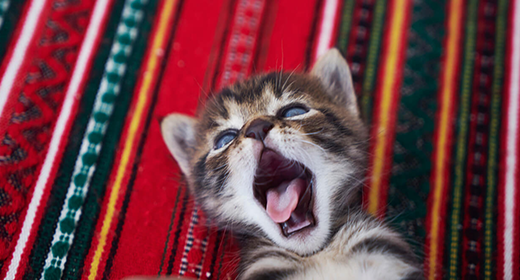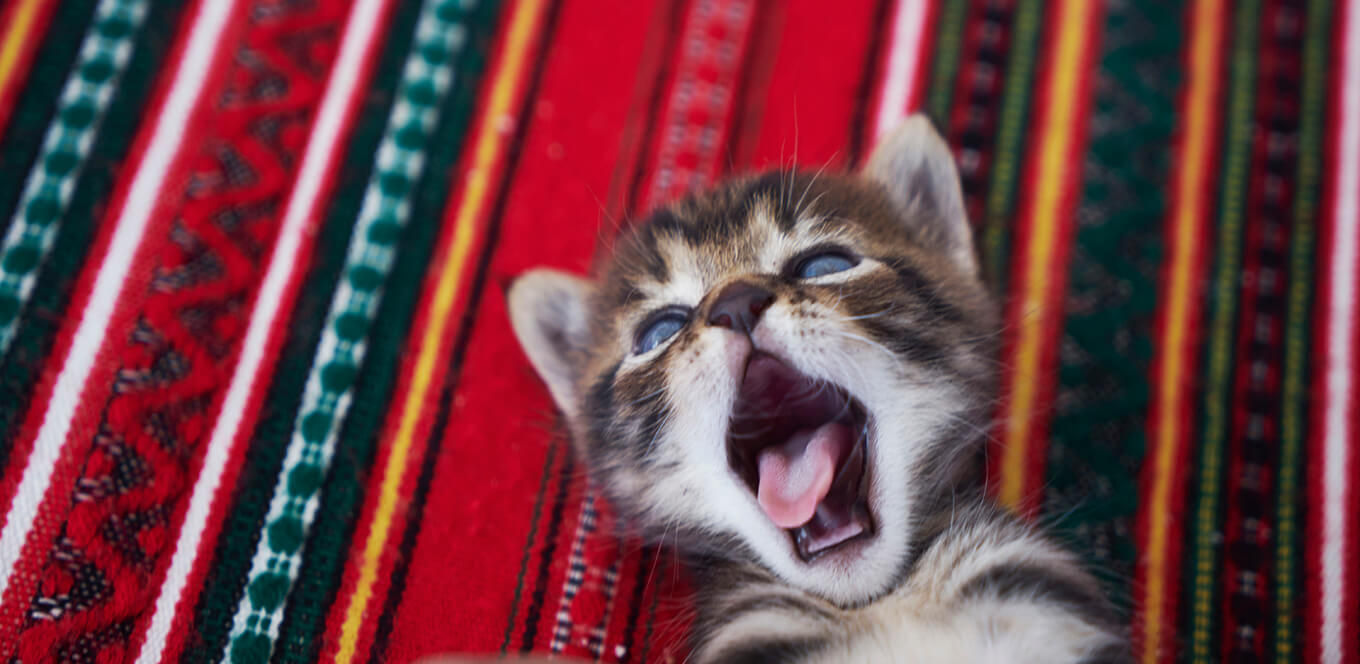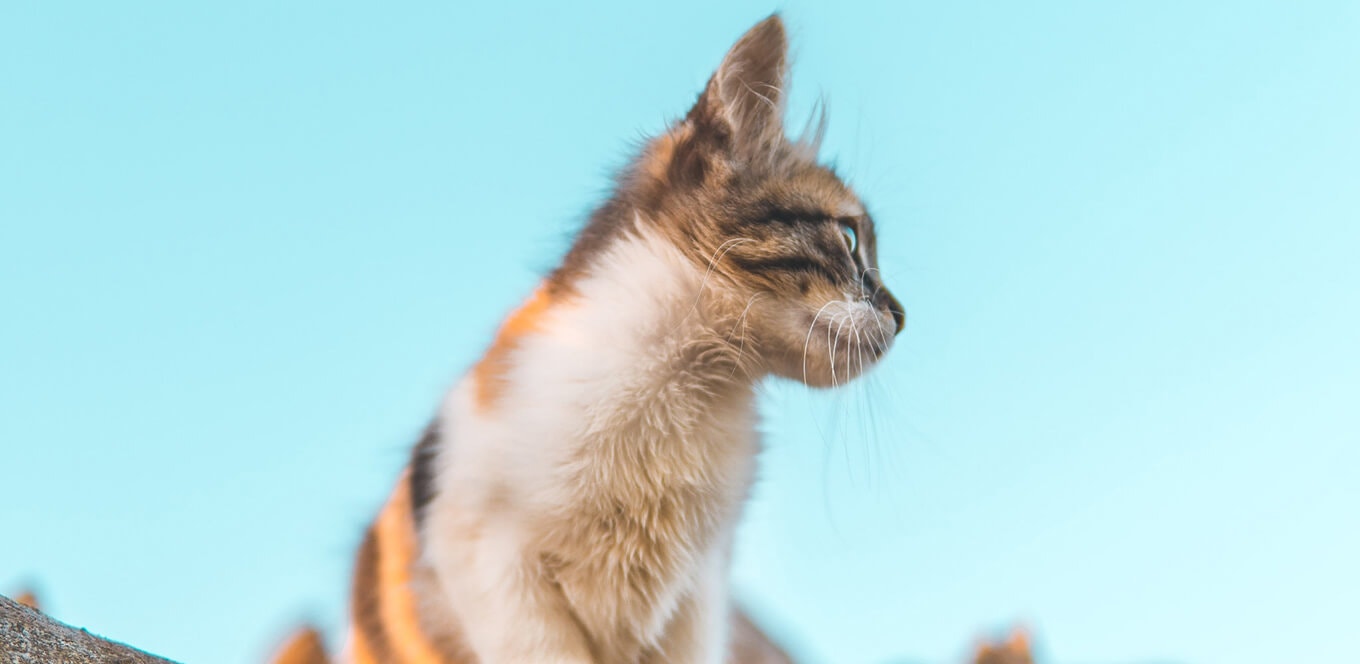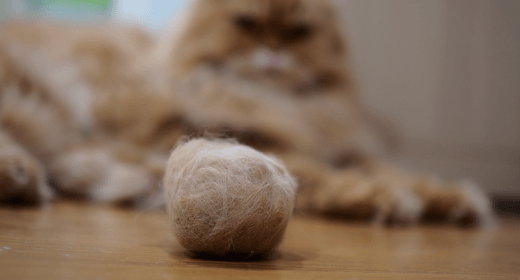

Taking care of a kitten is a big responsibility. But in addition to nutritious food, a warm place to sleep and plenty of play time, did you know kittens also need their teeth cleaned on a daily basis? Seventy percent of cats show signs of oral and dental disease by age 3 — but that doesn’t mean your kitten has to be among them. Here’s what you can do to take care of your kitten’s oral health.
There are three preventive measures you can take to ensure your pet’s oral hygiene doesn’t become a problem. They’re often referred to as the three D’s:
The first step in taking care of your kitten’s oral health is daily brushing. When you brush your kitten’s teeth, you remove plaque and slow the development of tartar. One of the easiest ways to do this is with a finger brush, which is available at most pet stores. Don’t forget to reward your kitten afterward with plenty of praise and play time!
Just like you, your kitten could benefit from annual or semiannual teeth cleanings. Vets refer to the cleaning as a dental prophylaxis. Besides helping keep your cat’s teeth and gums healthy, it’s the only way to remove tartar.
Dry food can be especially beneficial for oral health because the mechanical brushing action of dry kibble helps remove plaque and works to scrub your kitten’s teeth clean.
If you’re concerned about the health of your kitten’s teeth and mouth, keep an eye out for these signs of dental disease.
More than 300 types of bacteria naturally reside inside your kitten’s mouth. And when she eats, small food particles and saliva combine with the bacteria to form plaque. If plaque is left on the teeth, calcium in your pet’s saliva hardens it, resulting in a hard yellow-brown deposit on her teeth called tartar.
Your kitten lets you know a lot about how she’s feeling through the way she behaves. The following behaviors can indicate an oral health issue or periodontal disease:
Of course, a lot of these symptoms could signify other health issues, so it’s important to let a trained professional diagnose any health problems your pet may be having.
Nobody likes to deal with dental issues, your pet included. And even though your kitten can’t talk, that doesn’t mean she isn’t in pain. But if you’re armed with the three D’s of dental hygiene, your furry friend is sure to be happy and healthy for many years to come.




You love your cat. But the sight of watching your cat gag and cough up a hairball is anything but pleasant. Moreover, cat hairball can also cause intestinal blockages, which can lead to serious health issues for your cat.
Cat furball is common, but its seriousness varies from cat to cat. Long-haired breeds, such as Maine Coons and Persians, are more susceptible to developing hairballs. Besides, hairballs are more common in cats who shed excessively or groom themselves obsessively because they swallow a lot of fur.
In fact, you may have noticed that your cat didn't have hairballs when it was younger but developed the habit as it grew older. Cats become better groomers and even better at getting rid of fur from their coats with their tongues, resulting in more hairballs for you to clean up. It is this grooming behavior that is linked with the intake of fur.
Diet can be important in hairball relief for several reasons. The fiber combination of powdered cellulose and beet pulp in IAMS™ hairball formulas help move hair through the digestive tract. IAMS research has shown that cats fed IAMS ProActive Health™ Adult Hairball Care pass 80% more hair in their feces than cats fed a leading premium dry cat food. By helping ingested hair to be passed from the digestive tract, IAMS hairball formulas help reduce the opportunities for hairballs to form. This fiber blend also includes a moderately fermentable component to promote intestinal health. High-quality, animal-based protein and fat, found in IAMS hairball formulas, provide important nutrients for skin and coat health. Maintaining skin and coat health may reduce the risk of excessive shedding, ingestion of hair from grooming, and, consequently, hairball formation.
It's important to treat your cat's lack of appetite, as even a short period of time without food can have a significant influence on your cat's health. A decrease in appetite could suggest that your cat's hairballs have caused an intestinal blockage. It can also be an indication of a range of other issues. But a loss of appetite, regardless of the underlying cause, it is a problem that must be addressed as soon as possible.
Fatigue and lethargy are also common signs of a range of health problems in cats. They can, however, arise in conjunction with intestinal clogs. If your cat appears lethargic or weak, it may have a hairball blockage and require medical attention.
Keep a watch on your cat's litter box if they are vomiting hairballs frequently. Hairballs and constipation are both signs of a hazardous blockage that should be treated by an emergency veterinarian. Constipation in cats can be fatal on its own., thereforeTherefore, this is an issue that needs to be addressed correctlyonce to ensure your cat is healthy.
This could indicate that something is extremely wrong with your cat's digestive system, especially if it happens frequently. Cats with frequent diarrhea can quickly get dehydrated, so make sure they're getting enough water. Try boosting their liquid intake with wet food until you can get them to the vet.
If your cat is getting hairballs, then you should take your cat for regular grooming. The best way to overcome cat hairball issues is by brushing or combing their fur regularly. This way, less fur will wind up in their stomach as hairballs. It will also be a fun way for you to bond with your cat.
Hairball formula or cat food is another remedy to prevent cat hairball. Hairball-reduction cat diets are now available from any pet food company. These high-fiber compositions are meant to promote the health of your cat's coat, reduce shedding, and help hairballs move through the digestive tract in cats.
There are several cat hairball treatment products available on the market today. The best thing about them is that most of those laxatives are mild that aid in the easy passage of hairballs through the digestive tract.
It is natural for a cat to throw up occasional hairballs. But you should only start to be concerned if your cat is coughing out a hairball every few weeks or for more than 48 hours at a stretch. This is a symptom of too much hair ending up in the gut.
No matter how long their coat is, cats should only produce one hairball every week. Schedule an appointment with the veterinarian if your cat is vomiting hairballs more regularly or not eating.
You should feed your cat lots of prebiotics and natural fibers in its food to help it pass hairballs and maintain a healthy digestive tract. As a result, ensure that your cat is on a hairball-control diet and is getting enough fiber.
Generally, the fur travels through the gastrointestinal tract undisturbed and emerges in a stool. The digestion process takes 7 to 12 hours. Sometimes the fur can also accumulate in the stomach and create a hairball. This takes a little longer, but healthy hairballs should be gone in 24 to 48 hours.
Cat hairballs can be dangerous as they can cause severe blockages in their intestines and pose health issues later. In extreme cases, the choking can also lead to death.
Overweight cats have special nutritional needs in order to promote weight loss or weight management. Likewise, senior cats have special nutritional needs that are better met through a diet designed specifically for them. If an overweight or senior cat has problems with hairballs, feeding an IAMS hairball formula for indoor or senior (age 7+) cats is a great choice.
Yes. Mixing other foods with IAMS hairball formulas may compromise the effectiveness of this diet by diluting the nutrients that help reduce the risk of hairball formation. Switching between IAMS hairball formulas and another cat food may also decrease the benefit of feeding this diet.